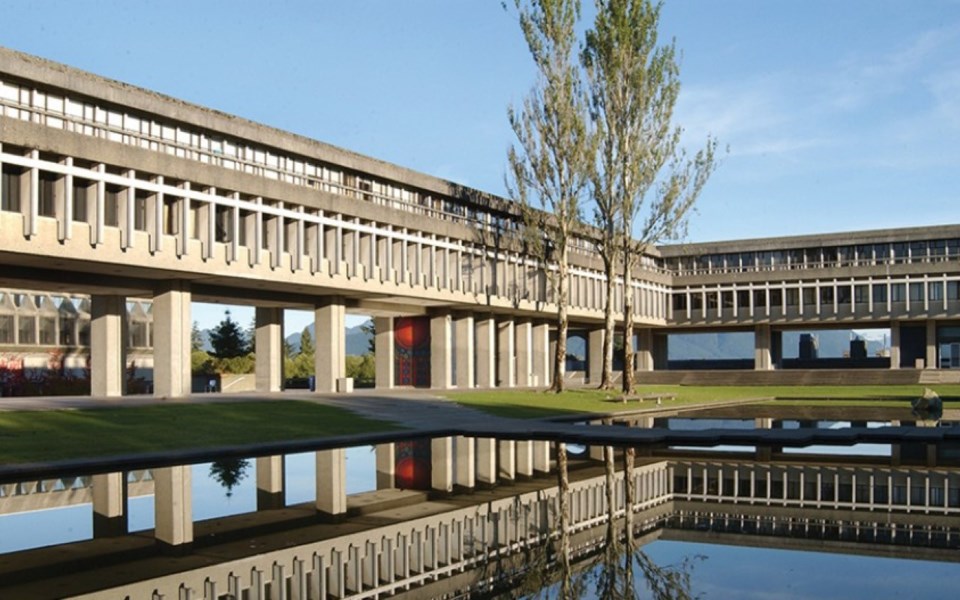Students from kindergarten to Grade 12 could head back to school before the end of an unusual school year.
While a date of return remains merely a possibility, the idea has not yet been ruled out by the B.C. Ministry of Education.
The same isn't true for B.C. post-secondary schools, which have largely committed to delivering courses online throughout the summer.
Over the last two weeks, those institutions have started to shift their focus to the fall, according to Universities Canada president and CEO Paul Davidson.
And a big part of that focus is to find ways to deal with a potential financial hit if the number of international students attending Canadian colleges and universities doesn't recover from losses suffered in the COVID-19 pandemic.
"In straight business terms, universities are facing a real challenge when it comes to the future of international students in Canada," Davidson explained, adding that students from abroad contribute more than $22 billion to Canada's economy on an annual basis.
"What do you do if, come the fall, the borders are still closed? That's going to be a significant challenge for Canada's universities."
At present, it remains unclear when and how Canada may reopen its borders, which means educational institutions are planning for a variety of scenarios.
University Canada West (UCW), a private university with a new campus slated to open in Vancouver this summer, has a new term starting in July, but president Brock Dykeman isn't expecting to physically welcome international students, who make up the majority of the school's student body.
"I think it's going to be messy for quite a time," he said, adding that while international students can take UCW courses online, enrolment numbers for the current term are already down between 25% and 50%.
"It's definitely going to hurt. It is hurting and will continue to hurt."
According to David Walls, president of College of the Rockies, the presidents of more than two dozen post-secondary institutions in B.C. speak with the province's deputy minister of advanced education on a weekly basis. Collectively, the sector is exploring what the easing of government restrictions in mid-May could look like.
"We're beginning to think about what would that be like, what would the fall semester look like," said Walls.
"We're not expecting that we suddenly could to be delivering all face-to-face instruction either. Everybody's talking about probably a bit more of a hybrid situation."
That could be in effect for the fall semester, with some students continuing to take courses online, and some returning to classrooms. It could be one student in every three classroom seats, said Dykeman.
Feroz Ali, president of the International Language Academy of Canada's higher education division, says classes could be broken into two or three smaller sections per day.
"It's hard to look at people and say, 'It's going to end on this day.' We just don't know," said Geoffrey Payne, interim president of the University of Northern British Columbia.
It also remains unclear how a downturn in the Canadian economy and rising unemployment could affect enrolment. Simon Fraser University president Andrew Petter believes demand could increase, with laid-off workers looking to upgrade their skills.
"I think it's recognized that education is the best insurance against economic uncertainty," he said.
Brett Fairbairn, president of Thompson Rivers University, said, the school is exploring the transition from an all-remote model to a hybrid model, or one where priority services or hands-on classes are delivered in-person with physical distancing.
"We're really looking at the time frame of about the next 12 months and when in that period we might be able to resume some of those things."
In the span of 10 days, universities across the country plugged more than one million students into online learning as COVID-19 physical distancing measures took effect.
"It is quite remarkable," Petter said. "The shift in the whole way we deliver our services, particularly our educational programs, has probably been the greatest challenge."
This story is part of a series on the next steps for B.C. businesses across a wide range of sectors as the province edges closer to the easing of COVID-19 safety measures. Check out all previous stories in this series, and stay tuned for further stories being published throughout this week.<
/p>



